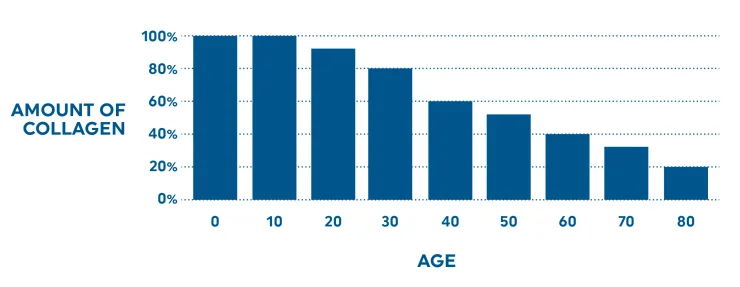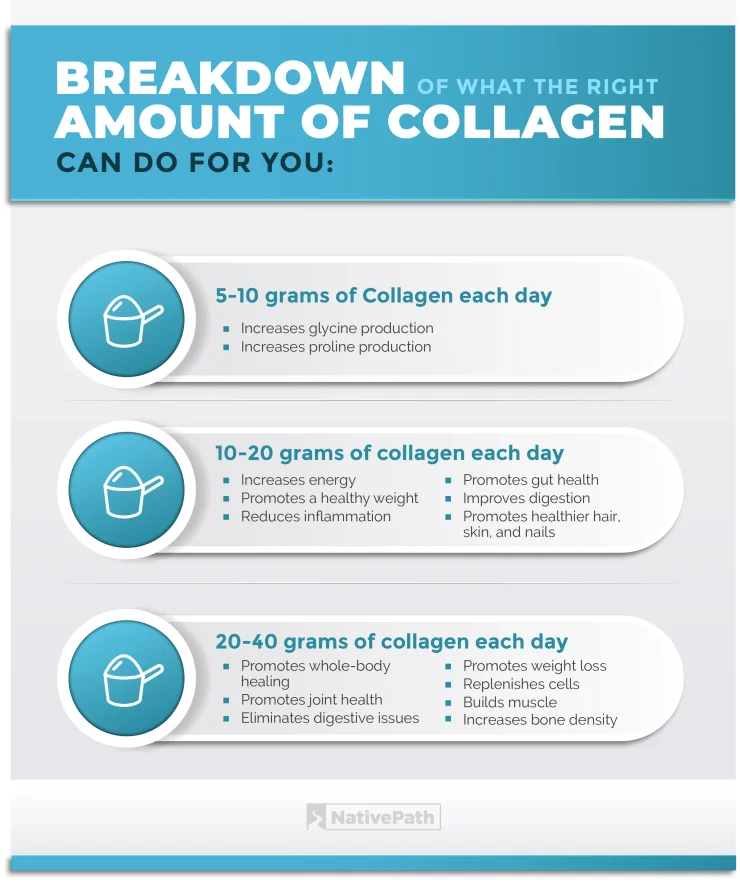You’ve invested your hard-earned money into a collagen supplement, and…
It’s not working.
You don’t feel any different.
You aren’t experiencing the “fountain of youth” results that everyone else is raving about.
Heck, you feel like your body is falling apart faster than it was before taking collagen.
There’s one of two reasons for this:
- The collagen supplement you bought is very poor quality.
- You aren’t taking enough collagen.
In this article, we’re going to tackle the latter of the two. Because with a high-quality collagen supplement, all it takes is the right amount. Once you have that down, you’re well on your way to that coveted fountain of youth.






